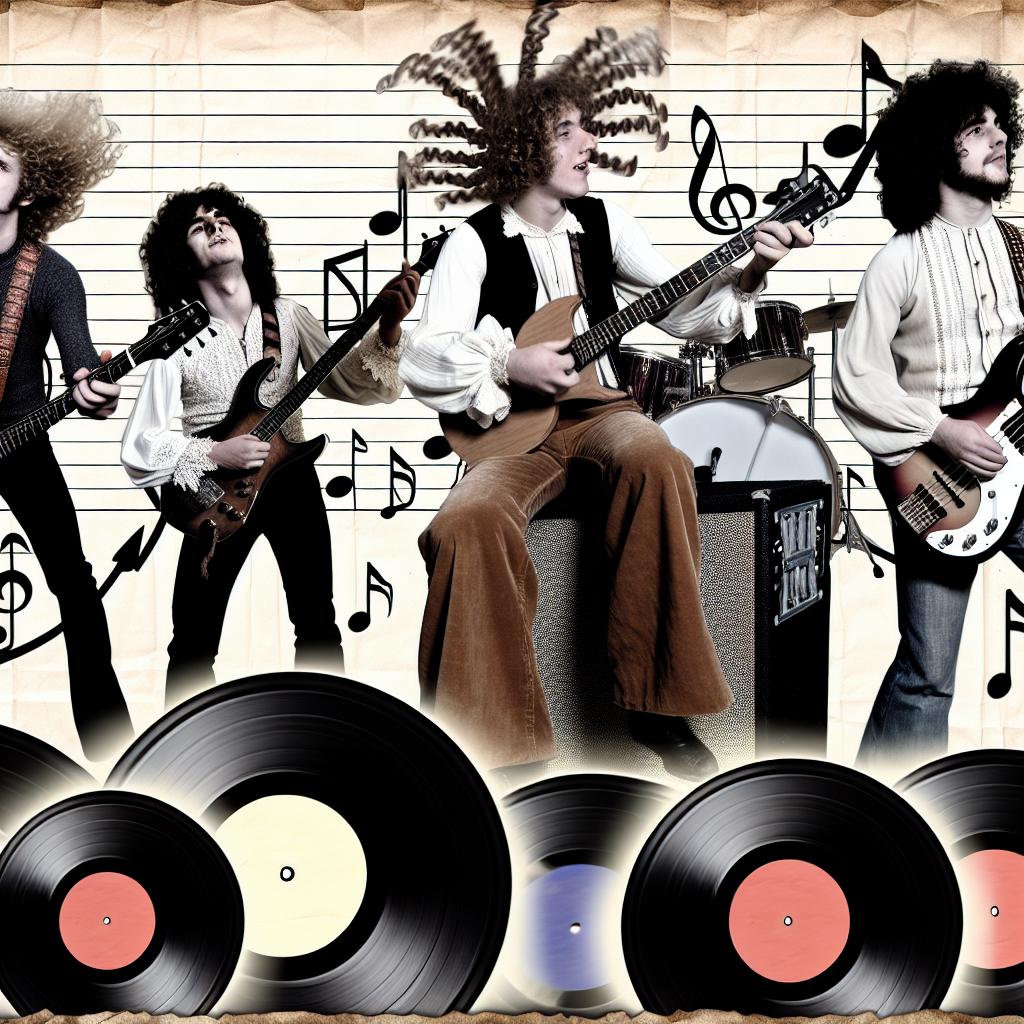The Who and the Rise of the Concept Album
The Who, a pivotal rock band formed in 1964, played a significant role in the evolution of the concept album in the late 20th century. By pushing boundaries in songwriting and musical composition, they contributed to the development of this unique form that would influence many others in the industry.
Understanding the Concept Album
A concept album is a record where the tracks hold a unified theme or tell a story, often with progressive rock elements. It departs from traditional album formats by providing a cohesive listening experience rather than a collection of disparate songs. This concept record trend gained momentum in the late 1960s and early 1970s, driven by the desire for artistic expression and narrative depth, marking a significant shift in the way music was consumed and appreciated.
In a traditional album, each song can stand alone, aiming to showcase the versatility and range of the artist. However, the concept album offers a different approach, inviting the listener to engage in a more immersive experience. This listening journey not only showcases musical talent but portrays a story or conveys a particular emotion or series of emotions, meticulously crafted and interwoven throughout the album.
The Who’s Early Influence
The Who’s early albums, such as “My Generation,” did not yet delve into the concept album format, but they already showcased the group’s innovative approach to music. Pete Townshend, the band’s primary songwriter, began experimenting with sequential storytelling and thematic continuity. This laid the groundwork for their later projects, where the band would fully embrace the concept album philosophy.
Their early work often reflected the youthful rebellion and societal observations of the time, which were integral themes that would later be expanded into more complex narratives within their concept albums. By creating songs that linked through a shared vision or theme, The Who were not only telling a story but also engaging their audience in a way that demanded attention to the album as a whole.
“Tommy” – A Landmark in Rock Opera
In 1969, The Who released “Tommy,” often considered one of the first rock operas. The album revolves around a deaf, dumb, and blind boy who becomes a pinball wizard, reflecting on themes of trauma, healing, and spirituality. “Tommy” exemplified the power of narrative-driven music and garnered extensive critical acclaim.
The story within “Tommy” is both compelling and challenging, combining elements of tragedy and triumph. This complexity adds layers to the music, inviting interpretations and discussions. The album’s narrative-driven approach set a precedent for what could be achieved when musicians combined storytelling with their compositions, echoing the traditions of classical operas within a modern rock context.
Its success cemented The Who’s reputation as pioneers in the genre, encouraging other artists to explore similar concepts. Bands and musicians recognized the opportunity to engage audiences on an intellectual and emotional level, creating works that would stand the test of time as both artistic and commercial achievements.
Impact and Legacy
The triumph of “Tommy” motivated the band to continue exploring concept albums, resulting in subsequent projects like “Quadrophenia.” These works further solidified The Who’s contribution to the content-rich album format and inspired countless musicians.
“Quadrophenia” delved into the life of a young mod, capturing the cultural struggles and identity crises of the time. This exploration of identity and societal roles expanded upon the themes first introduced in “Tommy,” creating a dialogue with listeners that transcended the music itself.
Apps like Spotify now feature concept albums because of bands like The Who. These platforms enable a broader audience to access and appreciate the complexity of concept albums, ensuring that this form continues to evolve and inspire new generations of musicians. By facilitating easy access to entire albums rather than just individual songs, digital platforms help preserve the integrity and intention behind concept albums.
If you’re interested in The Who’s discography or the evolution of the concept album, you can explore dedicated fan sites or music discussion forums. These platforms often provide rich insights and analyses, catering to enthusiasts and researchers alike. Discussions around how these albums were constructed, their lyrical themes, and their musical innovations can enrich one’s understanding of the creative process behind these monumental works.
The Who’s innovation in the sphere of concept albums has left an indelible mark on music history. Even decades later, their creative ventures continue to influence and inspire a wide spectrum of artists and genres. From progressive rock to modern indie bands, the impact of The Who’s dedication to thematic storytelling in albums is evident across the musical landscape.
In a broader cultural context, the doors opened by The Who and their concept albums challenge how narratives can be woven into various forms of artistic expression. Musicians today look to the past for inspiration, using technology and new platforms to recreate and redefine the concept album for contemporary audiences. In doing so, they keep alive the spirit of adventure and innovation that defined The Who’s journey from rock band to legends of their craft.
Through their groundbreaking approach, The Who demonstrated that music could serve as a platform for storytelling just as powerful as literature or film. This legacy continues to encourage and challenge musicians to think beyond individual singles and to explore more comprehensive and cohesive artistic journeys. The enduring influence of The Who’s concept albums ensures that this unique form of music remains a critical area of innovation and creativity in the music industry.
